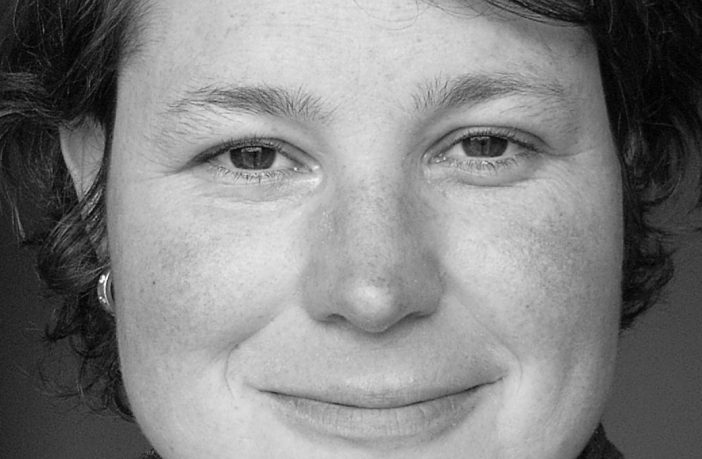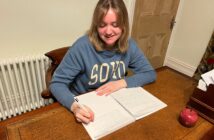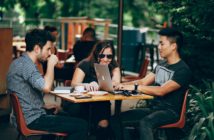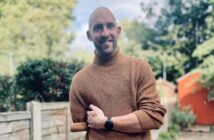In 2007, Karolien Verheyen was diagnosed with sarcoidosis, a rare condition that causes small patches of red and swollen tissue (granulomas) to develop in the body’s organs. Her diagnosis led Karolien to find out more about how the human body functions and she registered for a module in human biology with The Open University, later deciding to continue to an Open degree in the sciences. Karolien has used her degree as a stepping stone to clinical research into sarcoidosis.
Karolien told the OU her story:
“Being diagnosed with the rare illness sarcoidosis in 2007 led me to begin reading more and more about the human body and I registered for a module in Human biology with The Open University, which gave me greater insight into the body and its functioning. As I was nearing completion of this module, I thought, ‘Why not continue?’ and so I did other science modules. I achieved my BSc (Hons) Open degree and have just registered for an MSc Science– also with the OU.
Flexibility was key
I chose to study with the OU as I was living in a small village in Ireland at the time and wasn’t in a position to give up my full-time job and salary; the OU allowed me the flexibility to combine work with study. I’ve since moved back to Belgium.
Before embarking on my OU degree I had a masters degree in visual arts and a teaching qualification from Hogeschool Sint Lukas, Brussels, a diploma in youth and community work, and diplomas in percussion and guitar, community music and drug awareness. I wanted to achieve a degree in science, though, and put it to good use in the future.
Instead of a named science degree I opted for the BSc Open. I liked the idea of a qualification that was unique to me, one which I could tailor to suit my own interests and needs.
As I was self-funded, I couldn’t study more than one module at a time due to the costs involved. Time was also an issue, as my condition means that I have to take medication and attend hospital appointments regularly.
Solid support and guidance
I found selecting and registering for each module very simple and I asked for advice several times along the way. I was given some very sound advice by the science department in particular. Given my interest in research projects, I’m was less certain about some modules than I was about others, but I was determined to stick with it and obtain that precious qualification!
All my tutors were very helpful and knowledgeable; they’ve guided me in the right direction whenever I’ve been unsure and in the dark.
It was good to meet some of my fellow students face to face at the tutorials; I found these sessions very helpful too. The online tutorials are brilliant! My tutor lives in the UK, so once in a while we have a session via Blackboard; that way neither of us pays telephone costs. I’ve used the online forums, but mainly to read what students have written about TMAs and what they’ve asked about the module books.
Portable study!
I’ve taken advantage of the fact that most of the materials are quite portable and have studied anywhere it’s been possible! My books have accompanied me on train journeys, and I’ve studied in cafés with a cup of coffee, in bars with a beer, in restaurants while waiting for the food to arrive, in a youth hostel in Sweden, in Austria, the Netherlands, the UK… everywhere!
There have been a few challenges to overcome while I’ve been studying. For example, I had to repeat a module as I found it very difficult. It’s a shame, but such is life. I was having doubts about continuing, but it would have been a waste of money not to give it a go. Also, when I was really ill it was very hard to concentrate, but I kept going and took my time absorbing new information.
Eye opening realisation
I’ve enjoyed my OU experience very much and have learned an awful lot. I’d definitely recommend OU study to anyone considering it. I probably have to thank sarcoidosis for this journey which I otherwise wouldn’t have taken. It’s been a real eye opener to realise that I can study science at university level. It proves that I could have done science when I was a teenager, despite my schoolteachers advising against it.
I’m now working with on an international research project into sarcoidosis, and my OU MSc starts in February. Then, who knows? Maybe take a break from studying before going on to do a PhD.”



